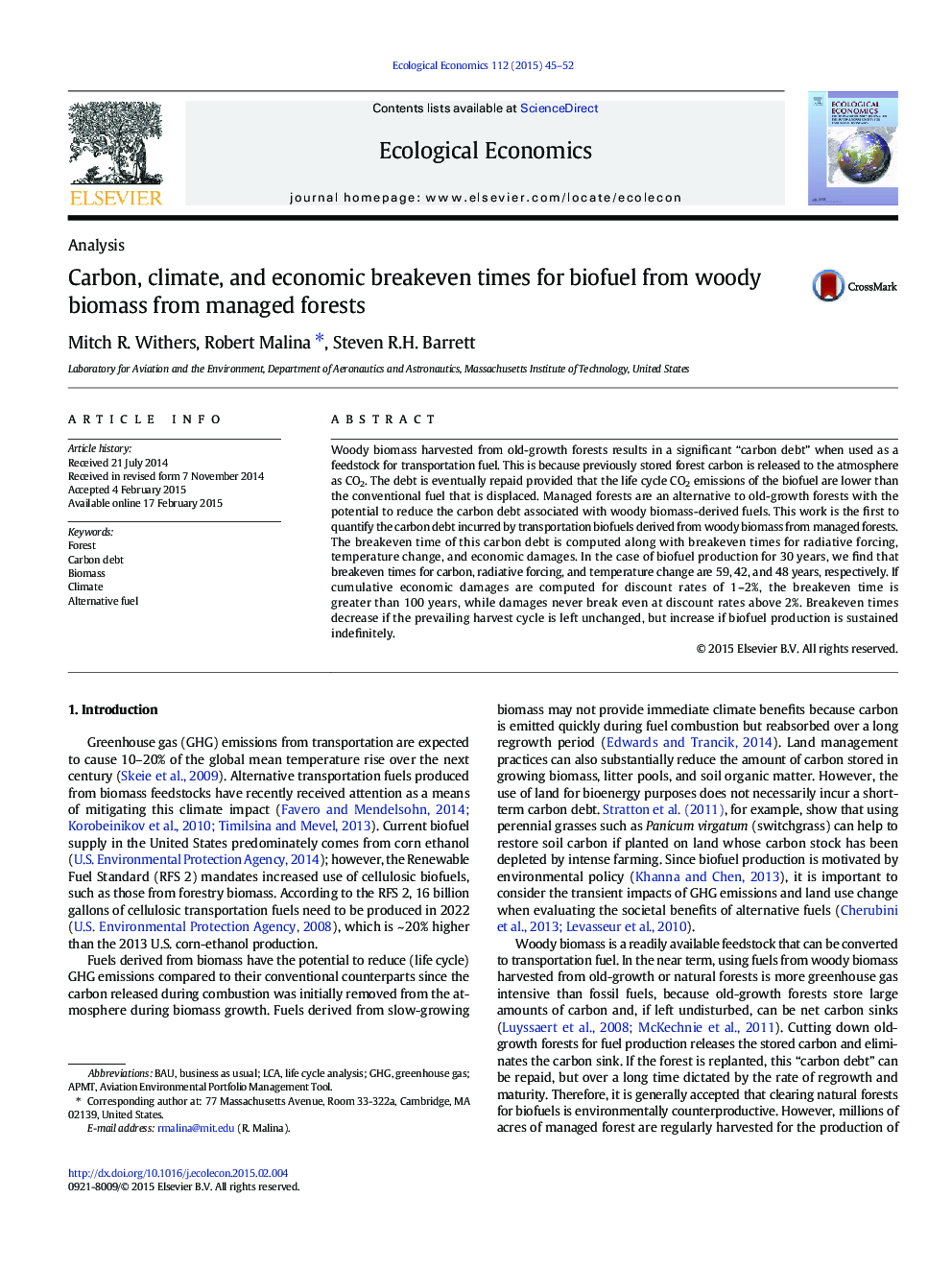| Article ID | Journal | Published Year | Pages | File Type |
|---|---|---|---|---|
| 5049402 | Ecological Economics | 2015 | 8 Pages |
Woody biomass harvested from old-growth forests results in a significant “carbon debt” when used as a feedstock for transportation fuel. This is because previously stored forest carbon is released to the atmosphere as CO2. The debt is eventually repaid provided that the life cycle CO2 emissions of the biofuel are lower than the conventional fuel that is displaced. Managed forests are an alternative to old-growth forests with the potential to reduce the carbon debt associated with woody biomass-derived fuels. This work is the first to quantify the carbon debt incurred by transportation biofuels derived from woody biomass from managed forests. The breakeven time of this carbon debt is computed along with breakeven times for radiative forcing, temperature change, and economic damages. In the case of biofuel production for 30Â years, we find that breakeven times for carbon, radiative forcing, and temperature change are 59, 42, and 48Â years, respectively. If cumulative economic damages are computed for discount rates of 1-2%, the breakeven time is greater than 100Â years, while damages never break even at discount rates above 2%. Breakeven times decrease if the prevailing harvest cycle is left unchanged, but increase if biofuel production is sustained indefinitely.
